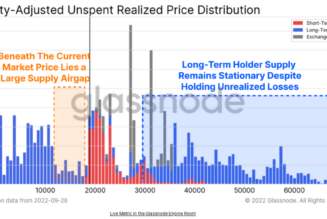
The crypto industry has reacted strongly against a EU Parliament committee voting in favor of a regulatory package for tighter know-your-customer (KYC) and anti-money laundering (AML) rules for ”unhosted” private wallets.
The new guidelines would require crypto service providers — most commonly exchanges — to verify the identity of every individual behind an unhosted wallet that interacts with them, while any transaction greater than 1,000 Euros ($1,100) would need to be reported to authorities.
Coinbase CEO Brian Armstrong vented his frustrations against the move via Twitter, as he drew comparisons with fiat to highlight the absurdity of reporting and verifying a 1,000 Euro transaction:
“Imagine if the EU required your bank to report you to the authorities every time you paid your rent merely because the transaction was over 1,000 euros. Or if you sent money to your cousin to help with groceries, the EU required your bank to collect and verify private information about your cousin before allowing you to send the funds.”
“How could the bank even comply? The banks would push back. That’s what we are doing now,” he added
8/ This eviscerates all of the EU’s work to be a global leader in privacy law and policy. It also disproportionately punishes crypto holders and erodes their individual rights in deeply concerning ways. It’s bad policy. Act now here: https://t.co/b3Ll3xXiW4
— Brian Armstrong – barmstrong.eth (@brian_armstrong) March 30, 2022
The proposal was part of an amendment to the Transfer of Funds Regulation that was voted through by the Economic and Monetary Affairs (ECON) and Committee on Civil Liberties, Justice and Home Affairs (LIBE) on March 31.
For the new rules to be enacted, they must be passed via trialogue negotiations between the EU Parliament, European Council and the European Commission, and if they remain unopposed, it would give the crypto industry nine to 18 months to come in full compliance with the legislation.
The chairman and CEO Pascal Gaunthier of digital wallet firm Ledger didn’t mince his words either, stating that the “EU Parliament chose fear over freedom”:
“A new regulation was just voted on that paves the way for a massive surveillance regime over Europe’s financial landscape.”
Today, the EU Parliament chose fear over freedom.
A new regulation was just voted on that paves the way for a massive surveillance regime over Europe’s financial landscape.
#thread to understand what lies before us. #Crypto #Bitcoin #blockchain
— Pascal Gauthier (@_pgauthier) March 31, 2022
The regulatory news appears to have had a significant impact on the price of Bitcoin (BTC), with the asset’s price declining 4.5% over the past 24 hours to sit at $45,243 at the time of writing. Ether (ETH) is also down 3.7% to $3,282 within that time frame.
European decentralized finance (DeFi) firm Unstoppable Finance lamented the news, expressing hopes that proposals will get shot down in the upcoming negotiations.
“The amendments are a huge setback for crypto in the EU & should be repealed in the trilogues,” the firm stated.
Today, the EU Parliament voted in favor of measures that raise significant concerns for both individuals and the crypto ecosystem. If ultimately approved, these new measures will create fundamental issues for privacy, innovation, and access.
Full statement below. pic.twitter.com/kjaeWxftz5
— Crypto Council for Innovation (@crypto_council) March 31, 2022
Related: European ‘MiCA’ regulation on digital assets: Where do we stand?
Unstoppable Finance’s head of strategy and business development Patrick Hansen also took to Twitter to vent his anger, calling the proposals a “big disappointment and a big threat to individual privacy.”
“It introduces unfeasible wallet verification requirements and unjustifiable reporting requirements for crypto companies that would have massively detrimental effects for EU citizens and companies alike.”
He noted it would be difficult, if not impossible, for crypto service providers to verify an “unhosted” counterpart and warned that to stay compliant and not compromise their legal position, some companies might want to cut off transactions with unhosted wallets altogether. Others, smaller ones, might find the potential operational costs of compliance too expensive, leaving it to the bigger established players, which would cause a further market consolidation
However, Hansen also noted that he holds optimism that the rules could be at least watered down in the trialogue negotiations, as “some Commission/Council members have voiced criticism” about the regulations.
Last update on the vote for today: The final committee votes on the entire draft and the mandate to enter trilogue negotiations are in and the results are as clear as expected.
Added these updates to the earlier thread on the vote. https://t.co/7NT6PxdDSB
— Patrick Hansen (@paddi_hansen) March 31, 2022
 [flexi-common-toolbar] [flexi-form class=”flexi_form_style” title=”Submit to Flexi” name=”my_form” ajax=”true”][flexi-form-tag type=”post_title” class=”fl-input” title=”Title” value=”” required=”true”][flexi-form-tag type=”category” title=”Select category”][flexi-form-tag type=”tag” title=”Insert tag”][flexi-form-tag type=”article” class=”fl-textarea” title=”Description” ][flexi-form-tag type=”file” title=”Select file” required=”true”][flexi-form-tag type=”submit” name=”submit” value=”Submit Now”] [/flexi-form]
[flexi-common-toolbar] [flexi-form class=”flexi_form_style” title=”Submit to Flexi” name=”my_form” ajax=”true”][flexi-form-tag type=”post_title” class=”fl-input” title=”Title” value=”” required=”true”][flexi-form-tag type=”category” title=”Select category”][flexi-form-tag type=”tag” title=”Insert tag”][flexi-form-tag type=”article” class=”fl-textarea” title=”Description” ][flexi-form-tag type=”file” title=”Select file” required=”true”][flexi-form-tag type=”submit” name=”submit” value=”Submit Now”] [/flexi-form]










Tagged: crypto blog, Crypto news, crypto wallet regulation, EU Parliament, European Commission, European Council